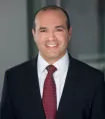On August 8, 2018, Christopher Collins, a member of the US House of Representatives for New York's 27th congressional district, was arrested on insider trading charges for disseminating material, nonpublic information about the Australian biotechnology company, Innate Immunotherapeutics Limited (Innate). Collins was a member of Innate's Board of Directors and one of the company's largest shareholders. The indictment alleges that, as a member of the Board, Collins was given advance notice of the negative results of a clinical trial for the company's only pipeline drug, which was being developed to treat Secondary Progressive Multiple Sclerosis.
Specifically, four days before public disclosure of the news, Innate's CEO emailed the Board of Directors to say that the trial was a "clinical failure." The grand jury indictment alleges that within seconds of responding to the CEO's email, Collins called his son, Cameron Collins (who was also charged), six times before he finally picked up the seventh call. On that call, Collins allegedly shared the information about the clinical trial with his son, so that Cameron Collins could sell his stake in Innate. Over the next four days, Cameron Collins and others sold their shares in Innate before the results of the clinical trial were publically announced. Soon after the results were publicized, Innate's stock plummeted by more than 90 percent. By trading on his father's tip, Cameron Collins allegedly avoided approximately $570,900 in losses.
The indictment does not allege that Collins himself personally traded on the information. Instead, federal prosecutors alleged that Collins violated US securities laws, and breached fiduciary duties he owed to Innate, by sharing the material nonpublic information with others with the expectation that they would trade on that information. Collins was allegedly precluded from trading his own shares because they were held in Australia and, at the time, subject to an Australian trading halt. Interestingly, when Collins received the news about the clinical trial, he was already under investigation by the House Committee on Ethics for his holdings in, and promotion of, Innate. The Office of Congressional Ethics later reported that it found "substantial reason to believe" that Collins violated federal law by meeting with individuals in his congressional capacity in an effort to benefit Innate. The Office also found that Collins shared nonpublic information with lawmakers and others in an attempt to solicit investors.
The facts of this case, as alleged, appear to be straightforward and consistent with a run-of-the-mill insider trading case. Still, the case represents yet another prosecution of a high-profile New York lawmaker. In fact, this indictment in many ways sits at the cross-section of the Southern District's increased focus in recent years on three types of white collar crime: insider trading, healthcare fraud and public corruption. It is the latest in a series of prosecutions that demonstrate the Southern District's growing effort to hold accountable those who take advantage of their influence for improper gain.
In one corner, there are the well-publicized public corruption cases coming out of Albany. In those cases, lawmakers and political players such as Sheldon Silver, the former New York State Assembly Speaker, Dean Skelos, the former New York State Senate Majority Leader, and Joseph Percoco, a former aide to Governor Andrew Cuomo, were convicted of honest-services fraud. Silver, for example, was found guilty of leveraging the influence of his office to receive kickbacks and bribes through quid pro quo schemes with real estate developers and an asbestos-cancer researcher. United States v. Silver, 15-cr-00093. Among other things, Silver solicited and obtained client referrals worth millions of dollars in exchange for his official acts. On July 27, 2018, Silver was sentenced to seven years in prison.
In the other corner sits a new wave of insider trading prosecutions that the Southern District has brought involving the "political intelligence" industry and well-known hedge funds such as Visium Asset Management and Deerfield Management Company. Just a few months ago, two partners and analysts of Deerfield Management, along with Christopher Worrall, an employee of the Centers for Medicaid & Medicare Services (CMS), and David Blaszczak, a political intelligence consultant and former CMS employee, were convicted after trial of trading on confidential nonpublic government information. United States v. Blaszczak, 17-cr-00357. These convictions stemmed from a scheme to obtain nonpublic material information from CMS about prospective changes to healthcare reimbursement rates. Worrall was charged with providing information about CMS's internal decision-making to his former colleague and friend, Blaszczak. In exchange for consulting fees, Blaszczak conveyed that information to employees at Deerfield Management, who then traded on the information. Deerfield generated millions in profits as a result of these trades. The four defendants are currently awaiting sentencing.
Somewhere in the middle lies the Collins prosecution. Collins, Worrall, and Silver were each charged with improperly taking advantage of their position for their personal benefit. In the honest services context, public officials are charged with violating duties owed to their constituents. In a "classical" insider trading case, a corporate insider is charged with breaching fiduciary duties owed to the corporation and its shareholders by taking advantage of nonpublic material information for the insider's benefit. Christopher Collins appears to have done both. He clearly violated his duties to Innate. And the Office of Congressional Ethics has concluded that he violated his duties as a congressman. Collins is the latest public official to be prosecuted by SDNY for abusing his public position, like Silver and Worral, for his own benefit.
By aggressively prosecuting these cases, the SDNY is sending a clear message that, regardless of their power, those who leverage their influence and commit fraud will be held accountable.
The content of this article is intended to provide a general guide to the subject matter. Specialist advice should be sought about your specific circumstances.


